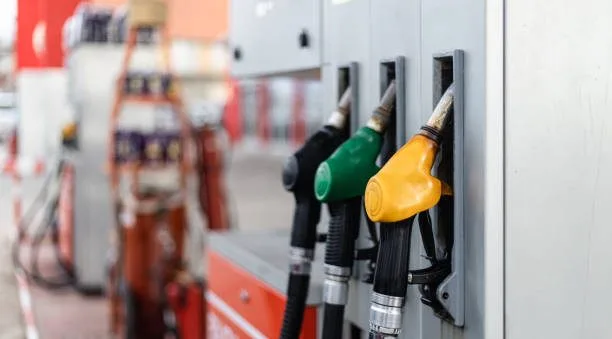Fuel price per liter rises by 42% in one year
Fuel price per litre at the pump has risen by 42.63% between March 2022 and March 2023 in Nigeria.
This is according to data from the Premium Motor Spirit (PMS) Report for March 2023, as released by the National Bureau of Statistics (NBS).
According to the report, Nigerians paid up to N264.29 per litre for fuel as of March 2023, meanwhile in March 2022, Nigerians paid only N185.30 per litre. Although some states recorded higher prices per litre in March 2023.
Prices by states in March 2023
The report stated that Nigerians in Imo state paid the highest for fuel during the period highlighted at N332.67 per litre. Also, those in Taraba state paid N330 per litre, and Borno state residents paid N324.55 per litre. On the other hand, Benue residents paid N195 per litre, those in Plateau state paid N196.79 per litre and Nigerians in Nasarawa state paid N197.50 per litre in March 2023.
Prices across zones in March 2023
Across Nigeria’s geopolitical zones, fuel prices were varied. In North Central, fuel cost N205.10 per litre. In the Northwest, it costs N282.17 per litre, in the Northeast, it costs N289.56. Meanwhile, the Southeast recorded the highest fuel price per litre at N306 also, the Southwest recorded N234.77 per litre and the South-South paid N281.98 per litre.
Why fuel prices are not uniform across the country
Not all states and regions are paying the same prices for retail fuel across the country. This is because of logistics and distribution costs which vary according to the locations the product is being sent to.
In a conversation with Nairametrics, an Executive at a local downstream company said the costs of moving fuel from one location to another is the reason why Nigerians are buying fuel at various prices in different locations. According to him, some independent marketers buy fuel at depots at low prices but transporting it to their selected destinations is where costs are added, and they have no choice but to pass this burden to consumers because they need to make a profit at the end of the day.
Counting the costs
The increase in fuel prices can have a significant impact on the economy, as it can lead to increased transportation costs, which can, in turn, drive up the cost of goods and services.
The Executive who pled anonymity also highlighted the fact that the number of fees and levies fuel tanker drivers are subjected to as they transport fuel interstate, contribute to the costs incurred by independent marketers. All states in Nigeria have different economic realities, some states demand fewer expenses than others
According to him, a state like Imo has a higher fuel pump price than other states in the country because the high cost of living in Imo will factor into the fees paid to the local government and the state government by tanker drivers who are bringing fuel into the state. He called for full deregulation of the downstream sector and maximization of our local refineries after they are fixed, to put a stop to high distribution costs as well as importation costs.
Aside from the reasons given by the Executive, fuel prices are also affected by a variety of factors, including international oil prices, exchange rates, and government policies.
What you should know
The average retail price of fuel for March 2023 at N264.29, increased by 0.20% from N263.76 in February 2023.









